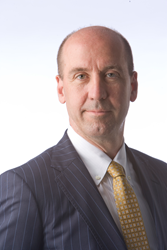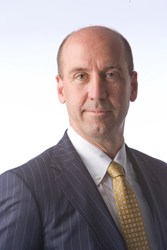The Interview: When it Comes to Hot Business Trends Old Fashioned Humility & Beauty Win


Minneapolis, MN (PRWEB) December 31, 2014
No one can predict the future; but Jack Uldrich helps organizations all over the world prepare for it. As a leading futurist, author, and speaker who helps organizations gain the critical foresight they need to create a successful future, Jack Uldrich’s work is based on the transformational principles of unlearning – or freeing one’s self from obsolete knowledge and assumptions – as a strategy to survive and thrive in an era of unparalleled change. The following are excerpts from an interview with Jack highlighting 2014 in hindsight and sharing his foresight on 2015.
Q: In one word–describe the biggest insight of 2014.
A: Humility.
Q: Will you expound on that?
The world is changing very quickly and ‘experts’ in particular must be humble to what they don’t know. To be clear: it doesn’t mean thinking less of yourself, it means thinking of yourself less frequently. Once one steps away from what they know into what they don’t know, unexpected insights are able to crop up.
Q: What were the highlights from your 2014 speaking engagements?
A: The twelve talks with Verizon Wireless Connected Technology Tour, where I specifically addressed The Internet of Things, was an in depth exploration of just one very important tech trend. Quite a bit of that information is now incorporated into almost every presentation I give. The ABB 5 city tour was fascinating too, because ABB (& Verizon) are actively creating the future with their technical advancement. They are also actively listening to consumers and inviting them to help shape the future. And the CAS presentation (Deja Vu/Vuja De) was an in depth use of history to illuminate the future for CAS’s centennial celebration which was a great way tie hindsight and foresight together.
Q: Did you personally do any unlearning in 2014?
A: Yes, two things come to mind immediately. First there was the unlearning of the limited nature of economics. Economists are knowledgeable but they don’t know what they don’t know; their knowledge has a finite value. People want definitive answers but as those answers are often wrong, they will accept a fallacy. The bottom line is people need to get comfortable with unpredictability.
Second, while the end view of technology is a net plus situation, it is now beginning to eat away at the edges of what it means to be human. As technology moves forward the question needs to be asked, ‘What makes us human?’ In the future more and more people will define themselves by what tech trends they say ‘no’ to. Society is on the verge of splitting into two different tracks–those who choose technology and those who don’t. I consider the second group of people to be ‘The New Amish’ which are people who knowingly say ‘no’ to technology because they don’t like what technology is doing to our society. That’s a rational choice and people will have to accept other people choosing other ways.
Q: The dichotomy of delving into technology as salvation is a curious question. It creates a lot of ambiguity.
A: If by technology you mean putting people out of jobs, then I am against it. If by tech you mean creating a new heart, I am for it.
Q: Is there any unlearning that you have applied to your daily life?
A: As a father, unlearning the habit of asking, ‘What did you learn at school today?’ and replacing it with, ‘What questions did you ask today?’ was one of my unlearning tasks in 2014. And as a speaker, learning about the power of the pause and unlearning how to fill the pause has been valuable. In other words, limiting responses or answers while others are talking, letting go of excessive thoughts and reactions and striving to really hear what the person is saying became more important.
Q: What trends will have the greatest effect on the average American?
A: Genomics, the sharing economy, and peer to peer lending as average people learn how to decrease consumption and help each other out. When it comes to collaborative consumption, Airbnb and Uber will probably have the most impact.
Q: A lot of these subjects have ethical ramifications…
A: As a futurist, making people aware of the trends and helping the clients choose which way to go is what it’s all about. Offering hard and fast solutions isn’t the answer, awareness is the answer. For example, as genomics continues to grow, the average lifespan will increase and people will easily live to be 100. There are huge societal and ethical implications to that increase so we must look to our leaders to then shape answers to the issues. The best way to ask for answers is to thoroughly understand each issue.
Q: Any new books coming out in 2015?
A: Foresight 20/20, co-written with Simon Anderson, will be updated and re-released in January. And the plan is for ‘Business as Unusual the Big AHA’ to be published later in 2015.
Q: Any other plans for the New Year?
A: As an author and presenter, the focus will be more on helping clients create the future they want to live into. Personally, living in a world with more butterflies is a priority. The current global butterfly population is down from one billion down to 30 million. To put that in perspective–that means the value of the dollar is down to three cents. Starting in 2015, my plan is to help begin getting the number of butterflies on the planet back to one billion.
Q: How is that going be accomplished?
A: I plan to start with my son Sean’s 8th grade class by helping them create an online campaign to plant milkweed along the migration path from California to Minnesota. By educating middle school kids across the country and inspiring them to communicate with one another about a cause and take real action by planting butterfly gardens, the population can be restored. With the help of modern technology and the internet, my aim is to bring some true beauty back into the world before it’s gone.
Find More Economics Press Releases